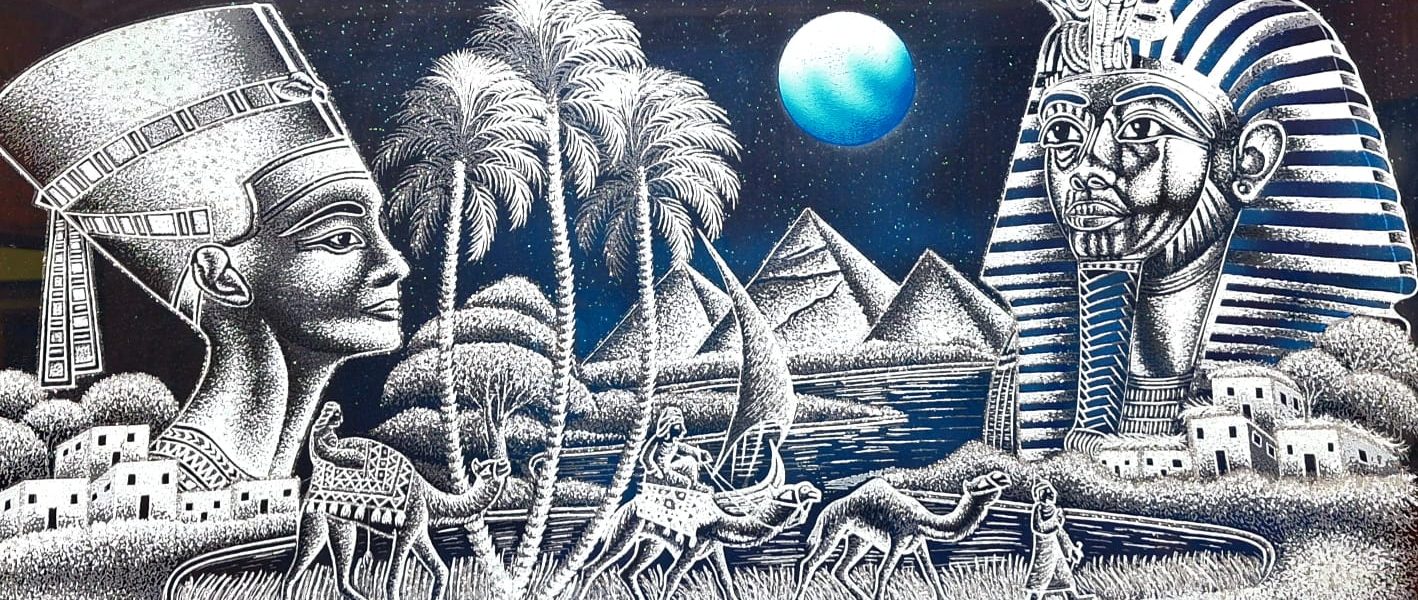Goddess Egyptian
Ancient Egypt was a civilization rich in mythology and divine figures, and among its pantheon of gods and goddesses, one deity stands out as a symbol of both magic and motherhood. In this blog post, we explore the enchanting world of Isis, the revered Egyptian goddess whose influence transcended the boundaries of religion, making her one of the most beloved and powerful figures in the ancient Egyptian belief system.
Ancient Egyptian gods
Isis: The Goddess of Magic and Motherhood
Isis, known as “Aset” in ancient Egyptian hieroglyphs, was a multifaceted goddess, embodying a wide range of attributes. She was primarily associated with:
- Magic and Healing: Isis was revered for her magical abilities and was considered the patron of magic, healing, and medicine. She was often invoked to cure illnesses and provide protection against malevolent forces.
- Motherhood: Isis was also celebrated as the divine mother and protector of children. She was often depicted nursing her son, Horus, symbolizing maternal care and love.
The Myth of Isis and Osiris
One of the most famous stories involving Isis is the myth of her husband, Osiris. Osiris, the god of the afterlife and rebirth, was murdered by his jealous brother Set. In her quest to bring her husband back to life, Isis demonstrated her incredible magical powers. This story embodies themes of resurrection, transformation, and the power of love.
The Spread of Her Worship
The worship of Isis extended beyond the borders of Egypt, reaching the Mediterranean world and even parts of the Roman Empire. Her cult, known as the “Isiac Mysteries,” attracted a diverse following, including people from various social backgrounds and nationalities.
Symbolism and Iconography
Isis is typically represented as a woman wearing a throne-shaped headdress with a solar disk and cow horns. She often holds an ankh, the symbol of life, in one hand and a papyrus staff in the other. Her wings are also a prominent feature, symbolizing protection and guidance.
Egyptian gods
- Ra (Re): The sun god, Ra was a powerful deity associated with the sun’s life-giving and regenerative properties. He was often depicted with a solar disk on his head.
- Osiris: The god of the afterlife and rebirth, Osiris was a central figure in Egyptian mythology. He represented resurrection, transformation, and the promise of life after death.
- Isis: As mentioned in the previous blog post, Isis was the goddess of magic, motherhood, and healing. She was revered as a protective and loving mother.
- Horus: The son of Osiris and Isis, Horus was often depicted with the head of a falcon. He symbolized kingship, and his eye, the Eye of Horus, was a powerful protective symbol.
- Anubis: The jackal-headed god, Anubis, was the guardian of the dead and oversaw the mummification process. He guided souls through the afterlife.
- Thoth: Thoth was the god of wisdom, writing, and knowledge. He was often depicted with the head of an ibis or a baboon.
- Bastet: Bastet was the goddess of cats, home, and childbirth. She was often depicted as a lioness or with the head of a lioness.
- Sekhmet: Sekhmet was the lioness goddess of war and destruction. She was considered both a protector and a fierce avenger.
- Anuket: The goddess of the Nile River, Anuket represented its nurturing and life-giving qualities. She was often depicted with a headdress adorned with ostrich feathers.
- Ptah: Ptah was the creator god and a patron of craftsmen and builders. He was associated with Memphis, an important ancient Egyptian city.
- Hathor: Hathor was the goddess of love, music, dance, and motherhood. She was often depicted as a woman with cow ears or a cow goddess.
- Amun: Amun was one of the most powerful gods in ancient Egypt, associated with the wind and air. He later became part of the Theban Triad when Amun, Mut, and Khonsu were worshipped together.
- Set: Set was the god of chaos and disorder, often associated with storms and conflict. He was considered both a force of evil and a necessary part of the balance of the world.
Read More




